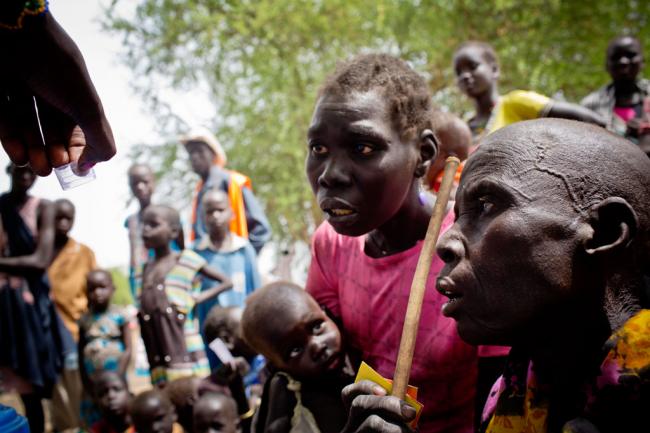
Without urgent action, world heading towards ‘post-antibiotic era’ – UN health agency
Launched by the UN World Health Organization (WHO), World Antibiotic Awareness Week (14-20 November) aims to increase awareness on global antibiotic resistance as well as to encourage best practices among the general public, health workers and policy makers to avoid the further emergence and spread of antibiotic resistance.
“Without urgent action, the world is headed for a ‘post-antibiotic era’ in which common infections and minor injuries which have been treatable for decades can once again kill, the benefits of advanced medical treatments such as chemotherapy and major surgery will be lost,” is one of the key messages WHO is transmitting through this campaign.
“Without effective antibiotics, a growing list of infections is becoming harder to treat. This includes pneumonia, tuberculosis, blood poisoning & gonorrhoea.” it warned.
With the theme ‘Antibiotics: Handle with Care,’ the campaign conveys the overarching message that antibiotics are a precious resource and should be preserved. They should be used to treat bacterial infections only when prescribed by a certified human or animal health professional. Antibiotics should never be shared or saved for the future.
WHO is encouraging all countries, health partners and students, and the public to join the campaign and help raise awareness of antibiotic resistance. A variety of resources are available to support local campaigns and a number of additional materials will be made available in the lead up to the week.
Why is this message important?
Causes of antibiotic resistance:
Over-prescribing of antibiotics
Patients not finishing treatment
Over-use of antibiotics in livestock and fish-farming
Poor infection control in hospitals and clinics
Lack of hygiene and poor sanitation
Lack of new antibiotics being developed
According to WHO, antibiotic resistance has become one of the biggest threats to global health and endangers other major priorities, such as development. It is rising to dangerously high levels in all parts of the world, compromising our ability to treat infectious diseases and undermining many advances in health & medicine.
Following proper use of antibiotics, such as using these only under medical advice and disposing these drugs in safe and proper manner are some of the ways the general public can help in addressing this threat.
Additionally, preventing infections by regularly washing hands, handling food in a safe and clean manner, avoiding close contact with sick people, practising safer sex and keeping vaccinations up to date are also important ways in which a person can maintain good health and avoid illness, WHO said.
Antibiotics also important for the food we eat
“Access to effective antibiotics is also essential to protect animal health, as well as to improve animal welfare, treat sick animals, food security and food safety,” added WHO.
With a specific call on people engaged with animal health, production and agriculture, the agency underlined the need to ensure that antibiotics are used under appropriate supervision, such as well-trained veterinarians.
It also called for fostering research on and the use of alternative treatments methods and not solely relying on antibiotics and for raising awareness on the responsible and prudent use of antibiotics in animals and plants, based on international standards.
Collective global response to a global problem
One of WHO’s major priorities is tackling antibiotic resistance. Its supreme governing body, the World Health Assembly, at its 68th session in May 2015, endorsed a global action plan on antimicrobial resistance (AMR), including antibiotic resistance. This action plan aims to ensure prevention and treatment of infectious diseases with safe and effective medicines.
Furthermore, in September this year, Heads of State met on the side-lines of the 71st General Assembly in New York and committed to a broad, coordinated approach to address the root causes of AMR across multiple sectors, especially human health, animal health and agriculture.
Countries have also reaffirmed their commitment to develop national action plans on AMR, based on the global action plan.
Photo: UNICEF/Kate Holt
Source: www.justearthnews.com
Support Our Journalism
We cannot do without you.. your contribution supports unbiased journalism
IBNS is not driven by any ism- not wokeism, not racism, not skewed secularism, not hyper right-wing or left liberal ideals, nor by any hardline religious beliefs or hyper nationalism. We want to serve you good old objective news, as they are. We do not judge or preach. We let people decide for themselves. We only try to present factual and well-sourced news.







